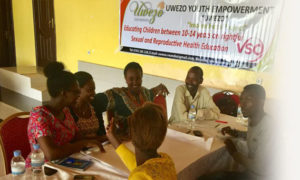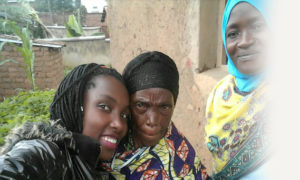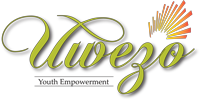Imbere Heza SRH 10-14 Years .

The Imbere Heza meaning “Better future” Project is funded by Voluntary Service Overseas 9VSO) Rwanda and educates children between 10-14 enrolled in primary and ordinary schools with rightful sexual and reproductive education. This project is based on the fact that more than 1.75 billion individuals in the world today are young people (aged 10-24 years) (WHO, 2008).
Adolescents (aged 10 to 19 years) have specific health and development needs, and many face challenges that threaten their wellbeing, including .
poverty, lack of access to health information and services and unsafe environments. Considering that youth aged 15 to 24 accounted for an estimated 45% of new HIV infections worldwide in 2007 and about 16 million girls aged 15 to 19 give birth every year (WHO, 2010), adolescents and youths sexual and reproductive health (AYSRH) needs -particularly girls- deserve considerable attention and resources.
Children with disabilities face additional barriers to the access of SRH information. Children with disabilities are less likely to attend school and their parents are less likely to think they need SRH information, or even think they will undergo puberty in the same way as other adolescents. They are also are less likely to be socialising with other children their age, or accessing the internet so even their access to informal information is limited.

Children with disabilities in Rwanda are also likely to attend school later and so likely to be experiencing body changes whilst surrounded by younger children in class, and will come to the SRH information in P6 when they have reached puberty. There are many myths around sexuality among people with disabilities, including that they cannot get pregnant and that they will not pass through puberty.
This lack of information and awareness makes people with disabilities even more vulnerable to violence and sexual abuse.
The Imbere Heza project therefore works with head teachers, teachers and parent representatives from 10 schools of Kicukiro district in Kigali city as well as community health workers and local authorities from 6 catchment sectors of the project. The project seeks to develop comprehensive and inclusive SRH manuals that would be used by teachers, community health workers and parents to educate their children on SRH information Pupils shall be facilitated to organize events at their schools through drama, debates, art and music to mobilize their peers on behavioral change for a better and healthier SRH.

